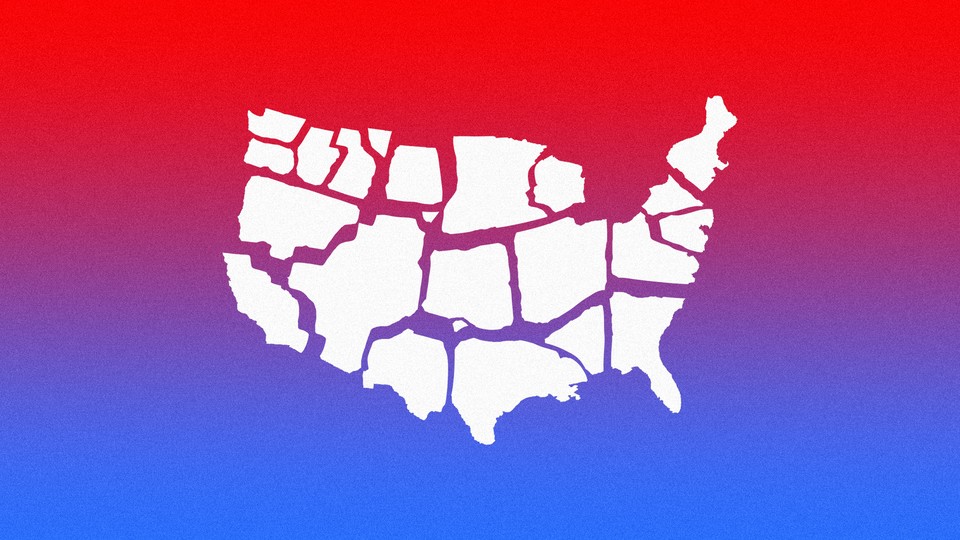Time to Roll the Dice
5 min read
November’s election has very high stakes: the nature and, indeed, the continued existence of the American republic, at least in the form that we’ve known it for the past century. Around the world, the United States under a second Trump presidency would cease to be seen as a leading democracy, or as a leader of anything at all. What kind of country elects a criminal and an insurrectionist as its president?
If he wins, Donald Trump has said that he wants mass deportations, perhaps carried out by the military—and he could do that. He wants to turn the Department of Justice against his enemies, and he might do that too: Just this week, he reposted a demand that Liz Cheney face a military tribunal merely for opposing him. The Supreme Court has just removed some more guardrails around our imperial presidency, and of course that process could continue, especially if Trump is able to pick more justices. If you think the level of polarization and political chaos in the United States is bad now, wait and see what those changes will bring. And if you think none of this can happen in America, please read the history of Hungary or Venezuela, stable democracies that were destroyed by extremist autocrats.
With America focused on its own internal crisis, American alliances in Europe, Asia, and everywhere else could fracture. The network of autocracies led by Russia and China would grow stronger, because their main narrative—democracy is degenerate—would be reinforced by the incoherent, autocratic American president. Ukraine, Taiwan, and South Korea would all be in jeopardy, because the autocratic world knows how to spot weakness and might begin to test boundaries. If Trump puts up across-the-board tariffs, he could destroy the U.S. economy as well.
A political party that cared about the future of America and, indeed, the future of the planet would do everything possible to avoid this fate. The Republicans have already shown us that they do not care and will not stop Trump. Until now, the Democrats have supported Joe Biden, a successful, transformative, and even heroic president, while a coterie of people around him concealed his true condition. Doubts about the 81-year-old president’s ability to continue governing were already widespread and are partly responsible for his low approval rating. Since last week’s debate, they have been front and center, and there is no reason to believe they will dissipate. On the contrary, the doubts are very likely to grow worse. Every stumble, every forgotten word will reinforce the impression created by the debate. Biden is polling behind Trump now. If he remains the candidate, he is likely to lose.
But this is July. The election is in November. Can anything be done?
Yes. Britain is about to finish a whole election campaign in six weeks. When the final round of voting is held on Sunday, France’s current election campaign will have lasted three weeks. The delegates to the Democratic National Convention don’t need to sleepwalk into catastrophe. They can demand that Biden release them from their pledge to support him. They can tear up the rule book, just like political parties do in other countries, and carry out a cold-blooded analysis.
Three states are essential to a Democratic presidential victory: Wisconsin, Michigan, and Pennsylvania. All three have popular, successful, articulate Democratic governors. A tactical, strategic political party would pick one of the three as its presidential nominee. The one who performs best on a debate stage, the one with the best polling, or the one who can raise the most money—the criterion doesn’t matter. Vice President Kamala Harris and any other candidates who stand a chance of winning those three states would be welcome to join the competition too. Everyone who enters should pledge their support to the winner.
The Democrats can hold a new round of primary debates, town halls, and public meetings from now until August 19, when the Democratic National Convention opens. Once a week, twice a week, three times a week—the television networks would compete to show them. Millions would watch. Politics would be interesting again. After a turbulent summer, whoever emerges victorious in a vote of delegates at the DNC can spend the autumn campaigning in Wisconsin, Michigan, and Pennsylvania—and win the presidency. America and the democratic alliance would be saved.
There are risks. The Democrats could gamble and lose. But there are also clear benefits. The Republican convention, due to take place in less than two weeks, would be ruined. Trump and other Republicans wouldn’t know the name of their opponent. Instead of spending four days attacking Biden, they would have to talk about their policies, many of which—think corporate subsidies, tax cuts for the rich, the further transformation of the Supreme Court—aren’t popular. Their candidate spouts gibberish. He is also old, nearly as old as Biden, and this is his third presidential campaign. Everyone would switch channels in order to watch the exciting Democratic primary debates instead.
By contrast, the Democratic convention would be dramatic—very, very dramatic. Everyone would want to watch it, talk about it, be there on the ground. Tickets would be impossible to get; the national and international media would flock there in huge numbers. Yes, I know what happened in 1968, but that was more than half a century ago. History never repeats itself with precision. The world is a lot different now. There is more competition for attention. An open, exciting convention would command it.
Whoever wins—Wisconsin Governor Tony Evers, Michigan Governor Gretchen Whitmer, Pennsylvania Governor Josh Shapiro, Vice President Harris, or anyone else—would be more coherent and more persuasive than Trump. He or she would emerge from the convention with energy, attention, hope, and money. The American republic, and the democratic world, might survive. Isn’t that worth the gamble?



